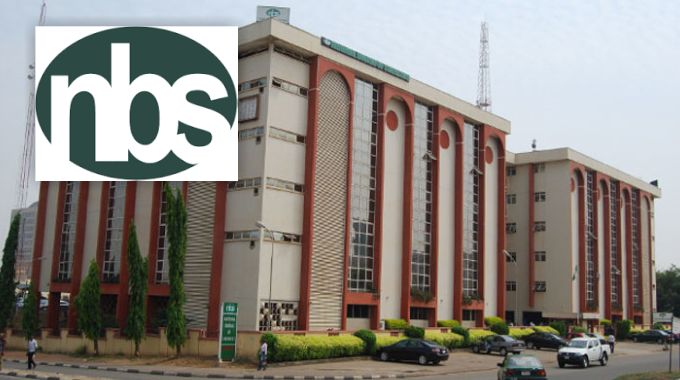The Central Bank of Nigeria (CBN) has introduced new measures to limit cash withdrawals from Point-of-Sale (POS) agents, a move aimed at advancing Nigeria’s cashless policy and limiting cash scarcity. According to a circular dated December 17, 2024, the daily withdrawal limit for individual customers has been set at N100,000, while agents are restricted to a cumulative daily limit of N1.2 million.
The directive, signed by Oladimeji Taiwo on behalf of the Director of Payments System Management Department, requires immediate compliance from Deposit Money Banks, Microfinance Banks, Mobile Money Operators, and Super-Agents. The policy also mandates that agency banking transactions must be conducted exclusively through float accounts.
Join our WhatsApp ChannelPrivate Sector Decries Policy as Detached from Reality
The Organised Private Sector (OPS) has criticized the new cash withdrawal policy, calling it unworkable and detached from the realities of everyday business. The President of the Nigerian Association of Chambers of Commerce, Industry, Mines, and Agriculture (NACCIMA), Dele Oye, expressed frustration with the CBN’s approach.
“The Central Bank of Nigeria seems completely out of touch with reality,” Oye remarked. “How are businesses supposed to operate when most banks have drastically reduced their branch networks? In some local government areas, there isn’t even a single bank branch. This policy is making cash transactions even more difficult for ordinary citizens.”
According to Oye, the cash scarcity is already affecting the ability of businesses and individuals to make essential purchases. “People can’t even get the essentials, like rice or milk, because of the economic chaos,” he added.
Impact on Rural Areas and Small-Scale Businesses
The National Vice President of the Nigerian Association of Small-Scale Industrialists, Segun Kuti-George, raised concerns about the impact on rural communities. He noted that people in villages and remote areas rely heavily on cash transactions, and many do not have access to banks or POS services.
“This policy will hurt rural communities the most,” said Kuti-George. “Farmers, for instance, may find it difficult to sell their produce to buyers who can’t pay electronically. Many rural residents don’t have access to electronic payment options or the literacy required to use them.”
He explained that while the move aims to promote a cashless society, Nigeria’s rural areas are far from ready for such a transition. The policy’s success, he argued, would depend on addressing the challenges faced by people in these areas.
POS Operators Face Role Realignment
The policy also affects POS operators, who have become crucial in providing financial services in areas with limited banking infrastructure. The President of the Association of Senior Staff of Banks, Insurance, and Financial Institutions (ASSBIFI), Olusoji Oluwole, viewed the policy as a step towards restoring POS operators to their core role of serving the unbanked population.
“This policy will ensure that POS operators return to their original role of providing banking services to the unbanked,” Oluwole said. He also noted that the system had been exploited by retailers and POS agents who “buy” cash from banks to resell at higher rates. “If implemented effectively, the policy will bring cash back into the banking system and reduce exploitative practices,” he added.
Economic Experts Warn of Business Slowdown
Dr. Muda Yusuf, Director of the Centre for the Promotion of Private Enterprise (CPPE), warned that cash scarcity could slow down business activities, particularly in Nigeria’s informal sector.
READ ALSO: Nigerians Worry Over Cash Scarcity As Yuletide Approaches
“The major effect of cash scarcity on businesses is that it slows down the velocity and volume of transactions,” Yusuf said. “This is especially true for the informal sector, which relies heavily on cash. In cities, electronic payments are more common, but in rural areas, cash is still king.”
Yusuf cautioned that a disruption in cash flow would affect the payment system, leading to a reduction in the speed and volume of economic activity. “Economic activities are affected, and that is not good for any economy. A seamless payment system is critical for growth,” he concluded.
CBN Defends Policy as Move Towards Digital Economy
Despite the backlash, the CBN insists that the policy is part of broader efforts to modernise Nigeria’s payment system and reduce reliance on cash. The directive aims to strengthen financial inclusion, combat fraud, and ensure uniform operational standards in agency banking.
According to the CBN, the separation of agent banking from other merchant activities will create a more organized financial system. The apex bank has also pledged to monitor agents’ activities closely, warning that violations would attract penalties, including fines and sanctions.
Mixed Reactions from Stakeholders
While some stakeholders view the policy as a progressive step, others see it as a burden on ordinary Nigerians. The Director-General of the Nigeria Employers’ Consultative Association (NECA), Adewale-Smatt Oyerinde, supported the cashless initiative but criticized the manner of its implementation.
“The revised approach will gradually achieve the cashless policy goal, but hasty implementation creates shocks in the economy,” Oyerinde stated.
As the policy takes effect, its success will largely depend on the ability of financial institutions, rural communities, and small-scale enterprises to adapt to the shift. The CBN has promised to carry out oversight and configuration checks to ensure compliance, but the real impact on businesses and citizens remains to be seen
Emmanuel Ochayi is a journalist. He is a graduate of the University of Lagos, School of first choice and the nations pride. Emmanuel is keen on exploring writing angles in different areas, including Business, climate change, politics, Education, and others.

















